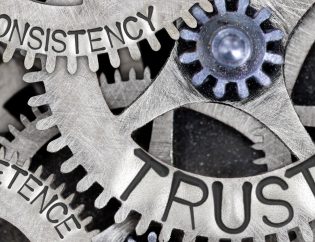PERSONALITY VS SOFT SKILLS
Why You Need to Know the Difference.

THE DEADLIEST MISTAKE
In a previous article, I addressed the deadliest mistake made by recruiters. The purpose of this article is to provide more information on the subject, so that you reduce the odds of making wrong & costly hires.
As a reminder, the deadliest mistake one can make in hiring people is to focus too much on hard skills, rather than on soft skills. In other words, hiring for competence instead of hiring for potential.
Much has been written in my previous articles on the subject, and many recognized authorities in the HR world have warned against focusing too much on technical skills & proven competencies – while neglecting the evaluation of soft skills needed to succeed on a specific position.
But one thing I recently realized is that many recruiters may have an incorrect definition of the words “soft skills” and “personality.” This can potentially lead to an inability to look for the right soft skills, when evaluating applicants.
THE MEANING OF “PERSONALITY”
Let’s start with that word, because it lies at the bottom of all confusions. The American heritage Dictionary provides a very interesting definition:
“The totality of qualities and traits, as of character or behavior, that are peculiar to a specific person. Or: The collection of distinctive qualities of a person, especially those distinguishing personal characteristics that make one socially appealing – or not.”

Interestingly, when you check the etymology of the word “personality,” you come up with the word persona, which literally means character. The early origin of the word was actually associated to various characters in a play, where actors would play different characters. And the way to differentiate those characters was to wear different masks.
Hence, personality was originally related to wearing
a mask. This led me to write the bestseller “Taking Off The Mask” a couple of years ago.
You might have observed (at least once) that a candidate would look great during the recruitment interview, only to appear very different a couple of months later. What happened? Well, what happened was that you were interviewing someone who was wearing one or more masks - in other words, they would show you the best of themselves during the interview, but not necessarily their real, chronic personality.
So here is a primary mistake you want to avoid in hiring: interviewing and evaluating a candidate, not being aware that you may be evaluating a mask. The key question to ask yourself is: Will the person I see today be the same person tomorrow (or in the next three months)?
Knowing that 53% of resumes contain lies and over 30% of them contain gross lies, you definitely want to detect during the recruitment process any possibility of FALSE or temporary personality traits, otherwise called masks.
PERSONALITY VERSUS SOFT SKILLS:

How does personality differ from soft skills? The answer is simple: Many soft skills cannot be developed if the right personality traits are absent in a candidate’s general character. Soft skills can, to a certain degree, be developed and/or improved. But they largely depend on personality traits that are definitely harder to change.
Personality traits can be considered as features of a person's character that are an existing aspect of their life endowment and sometimes developed through life experience.
On the other hand, soft skills are a PACKAGE of different personality traits which make up a specific behavioral characteristic. They are qualities that one has developed (or potentially could develop), thanks to specific personality traits.
- For example, empathy is a personality trait. It can be somehow improved overtime, but not easily. Empathy is needed in order to be a good leader – leadership being a vital soft skill. However, there are (many) other personality traits needed to make a great leader.
- For example, team spirit is an important soft skill that requires the willingness to contribute to the success of a group. That willingness depends, among other personality traits, upon empathy.
So, we could agree that many soft skills depend upon specific personality traits. And the absence of specific personality traits could lead to major difficulties in demonstrating the right set of soft skills for a specific position.
APPLICATION: SOFT SKILLS NEEDED TO BE A GREAT “NEGOTIATOR”
 Being a good negotiator is definitely a vital soft skill to be successful as a sales professional. The question is, how do you evaluate and recognize a good negotiator? Some specific personality traits common to all great negotiators are:
Being a good negotiator is definitely a vital soft skill to be successful as a sales professional. The question is, how do you evaluate and recognize a good negotiator? Some specific personality traits common to all great negotiators are:
- Active communicator – being able to (1) listen
and (2) ask the right questions - Persistent
- Assertive
- Extrovert
- Curious
- Hungry
- Honest
- Passionate
- Willing to learn
- Etc.
If you look at those attributes above, you can recognize that they are part of one's personality - all needed to make up the soft skill of “being a great negotiator.”
Conclusion
In order to evaluate if a candidate possesses the needed soft skills for a specific position, you must be able to detect the related personality traits that make up such soft skills.
Too many recruiters make the fatal mistake of (1) ignoring what soft skills are needed to perform successfully on the job and (2) failing to analyze if a candidate possesses the right set of personality traits that are necessary to make up the needed soft skills for a specific position.
At Hirebox, we offer the most thorough and precise soft skills assessment, which in fact evaluates specific personality traits that make up the soft skill package needed to ensure success on a specific job. Ask for your 2-week free trial if you have no experience with our testing platform.
Best success!
Patrick Valtin,
CEO Hirebox










